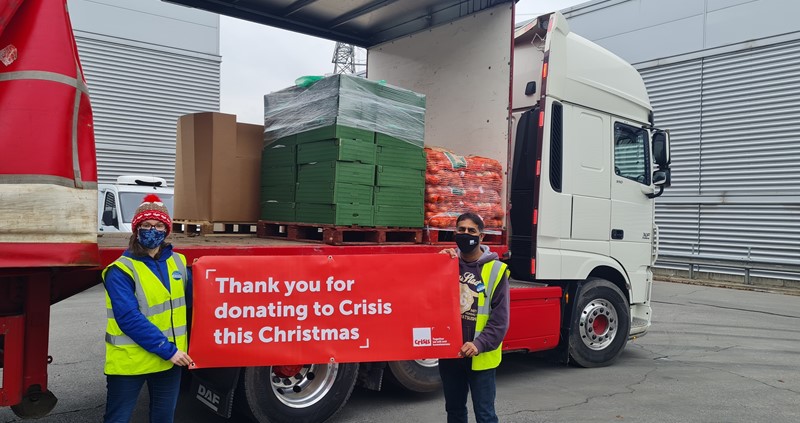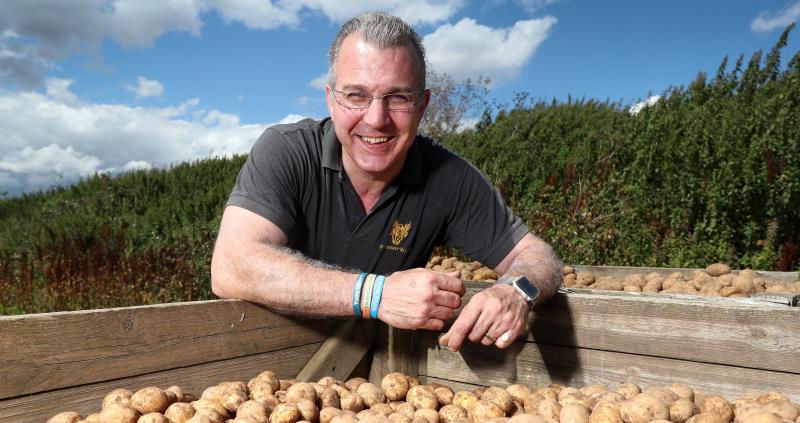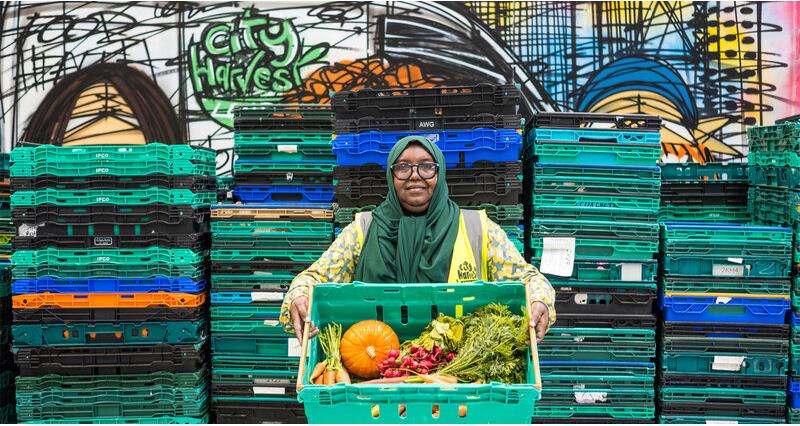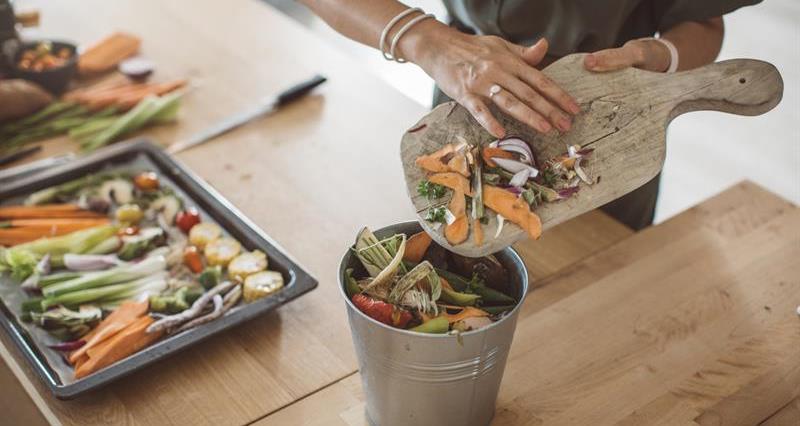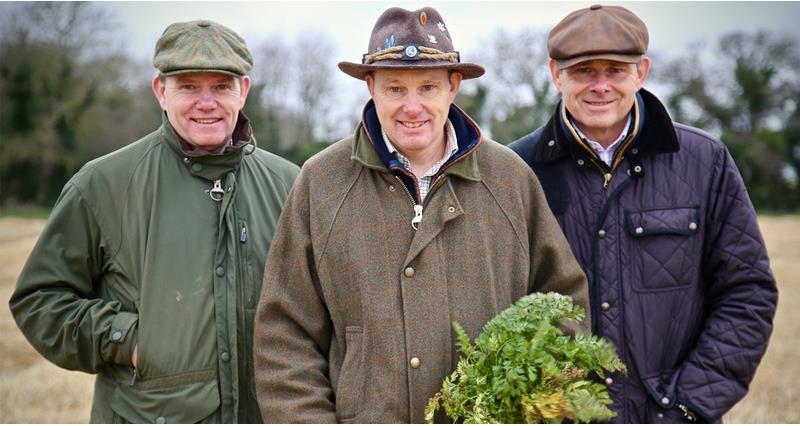Amid all the industry talk of spiralling input costs and crippling energy bills, it’s easy to forget that sectors across society are facing every bit as big an existential threat as farming.
The charity sector, for instance, is facing unprecedented demand on its services, with the cost-of-living crisis reducing public donations at exactly the time that more people are being driven into poverty.
The Trussell Trust, which works to stop hunger and the need for food banks in the UK, reported providing almost 1.3 million emergency food parcels between April and September 2022, a figure 50% above pre-pandemic levels and a third higher than the demand faced the year before.
Meanwhile, Fareshare, an organisation that redistributes surplus food to charities that turn it into meals, says that two million tonnes of food is wasted on farms and in factories every year. That’s enough for 1.3 billion meals per year.
Helping each other
The good news is it is becoming increasingly clear that the farming and charity sectors can help each other. With pressure to reduce food waste in a responsible way, growers are looking for an outlet for their produce, while charities and food banks need partners for a regular supply of food.
NFU Norfolk Chair Tim Papworth, a potato grower from Lodge Farm in Felmingham, Norfolk, has been working with the Norfolk Community Foundation. Last October it opened its tenth Nourishing Norfolk Food Hub as part of its mission to ensure that nobody in the county will go hungry.
Mr Papworth, whose business doesn’t have a cold store, had a volume of surplus potatoes and took a tonne on his trailer to the charity during the Norwich harvest festival. He has also been donating to Jonathan Childs, who runs the Garden House pub in Norwich and has been feeding homeless people since the Covid lockdowns.
“Those potatoes were not going to go down a factory line, or make me any money,” Mr Papworth explains.
“Those potatoes were not going to go down a factory line, or make me any money. They are surplus to my requirements into the processor or packer, and I can’t store them, so it’s good to help people."
NFU Norfolk Chair and potato grower Tim Papworth
“The cost of giving them to stock is £15/t, and, for that cost, if I can give them to people in Norwich who are struggling to make ends meet, why not?
“It makes me feel good, they are surplus to my requirements into the processor or packer, and I can’t store them, so it’s good to help people.”
Redistributing supplies
Another East Anglian business, Burgess Farms works with several national charities, including FareShare and Crisis At Christmas, to redistribute supplies of fresh potatoes and vegetables.
Each one of the company’s regional operational sites also has well-established links with further local charities and organisations, and in recent years the business has been proactive in working with various fresh produce box schemes who source crop surpluses, ensuring food waste is minimised in the supply chain.
“Burgess Farms takes our responsibility for having a positive impact across local and national communities very seriously.”
Mike Scott, managing director for potatoes and group commercial, Burgess Farms.
By the end of 2022, Burgess Farms had supplied FareShare with around 1,000 tonnes of potatoes, onions, carrots and parsnips over the past decade.
“In my view there has been an increase in this type of charitable donation activity over recent years,” says Mike Scott, managing director for potatoes and group commercial at Burgess Farms.
“We have also further focused on reducing net levels of food waste within our overall growing and product supply activities,” he adds.
Working together
Cambridgeshire-based salad and vegetable specialist G’s Fresh believes reducing food waste and supporting charitable initiatives goes hand in hand.
The company notes that, in 2017, some 16% of its handled produce was wasted, a figure that was reduced to 8% by 2021.
A key part of that has been food redirected to charities including FareShare, City Harvest, the Bread & Butter Thing, the Felix Project and local food banks.
Its work with FareShare alone is believed to have prevented 1.9 billion litres of embedded water and 2,016 tonnes of embedded CO2 from going to waste.
“Our food waste champions have focused on creating an 18-month plan, defining their focus and scope of work, driving group-wide communications and awareness of food waste and further developing relationships with key charities,” the company says.
Logistical challenges
It sounds like the perfect relationship in principle, but there are challenges. Chief among those is logistics, according to Mr Papworth.
“I tend to deal in lorry loads rather than just some potatoes in a wooden box, and then when you get it to the charity’s site, how are they going to get a tonne of potatoes out?” he said.
“Do they have a forklift, or enough people to pick it out by hand? So logistics and transportation are the biggest problems, because it’s all very well saying that you will take a tonne of carrots or parsnips, but how do they handle it at the other end?
“You have to think a bit creatively about how you can help.”
“I tend to deal in lorry loads rather than just some potatoes in a wooden box. You have to think a bit creatively about how you can help.”
Tim Papworth
Some charities also struggle to handle raw vegetables and are looking for cleaned and packed product, he adds, so it is a case of picking the right partner that has a suitable operation to deal with it.
Intangible benefits
These issues aside, there is an intangible benefit that comes with supporting charities and the needy during tough times, in terms of a feel-good factor and boost to staff morale.
Mr Scott said: “Burgess Farms takes our responsibility for having a positive impact across local and national communities very seriously.
“These charitable activities form part of our ongoing positive culture, actively displayed across all elements of our business,” he adds.
Mr Papworth says that his work has received positive publicity for the business on social and local media.
Where the logistical challenges can be overcome, it is clear that it’s a win-win for all involved, and the nation’s growers and farmers are determined to step up and help where they can.
How to get involved
Donating surplus fresh food can be as simple as getting in touch with your local food bank or redistribution charity, but there are also national schemes that help with the process.
FareShare’s Surplus with Purpose initiative, for example, works with businesses across the food industry to help cover the extra costs of providing their unsold food to people who need it, and preparing unfinished surplus food for redistribution.
The fund helps redistribute thousands of tonnes of surplus fresh fruit and vegetables, poultry, processed meat, dairy and other chilled and frozen grocery products.
NFU Mutual, which donated £150,000 in support of the scheme between 2021 and 2022, has been running a campaign urging food suppliers to get involved and both reduce food waste and hunger.
Businesses who haven’t worked with the charity before can get in touch via givefood@fareshare.org.uk.
